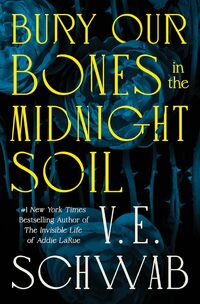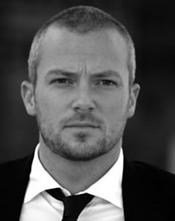 BURY OUR BONES IN THE MIDNIGHT SOIL |
 Fall headfirst into July’s hottest stories—danger, desire, and happily-ever-afters await. | E. Benjamin Skinner
Born in 1976, Ben Skinner was raised in Wisconsin and northern Nigeria, where his father had served as a British colonial administrator. He first learned about slavery as a child in Quaker meeting. The Quakers, who believed that the divine spark animates every man, were the first abolitionists. Skinner’s Sunday school teachers spent as much time on Harriet Tubman and William Lloyd Garrison as they did on Moses and Jesus. Skinner himself comes from abolitionist stock. His great-great-grandfather, Robert Pratt, served with the 1st Connecticut Artillery at the Siege of Petersburg, the ten-month campaign which bled white the Confederate Army and led to Lee’s surrender at Appomattox. Pratt’s uncle was a comb-maker too old to serve at the time, but not too old to make fiery antislavery speeches. When one of his distributors told him his abolitionist talk was hurting sales in the south, he exploded: “If they won’t buy my Yankee combs, then let them go lousy!” In 2003, as a writer on assignment in Sudan for Newsweek International, Skinner met his first survivor of slavery. He had first flown in under enemy radar with an Evangelical group purporting to buy slaves en masse to secure their freedom. Afterwards, on his own, he hitched a ride on a U.N. Cessna to the frontlines of the north-south Sudanese civil war. There he met Muong Nyong. Like Skinner, Nyong was 27 at the time, and pondering what to do with the rest of his life. Unlike Skinner, he had spent the first part of that life in bondage. After meeting Nyong, Skinner traveled the globe to find others like him. Scholars estimate the total number of modern-day slaves is greater than at any point in history. But the number means nothing, unless slavery means something. Skinner adopted a narrow definition: slaves are forced to work, under threat of violence, for no pay beyond subsistence. Though there are more slaves today than ever before, finding them would prove the most daunting challenge of Skinner’s professional life. Slaves languish in shadows, kept hidden by violent traffickers and masters. Going undercover when necessary, Skinner infiltrated trafficking networks and slave quarries, urban child markets and illegal brothels. In the process, he became the first person in history to observe the sales of human beings on four continents.
Log In to see more information about E. Benjamin Skinner
SeriesBooks:A Crime So Monstrous, April 2009Trade Size A Crime So Monstrous, March 2008 Hardcover |
|
|
| |||
|
||||



 © 2003-2025
© 2003-2025